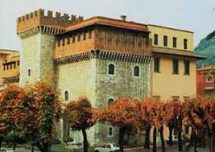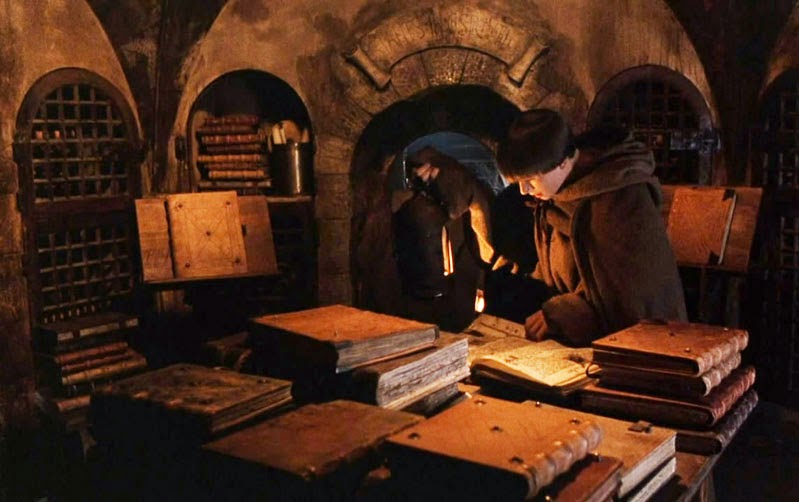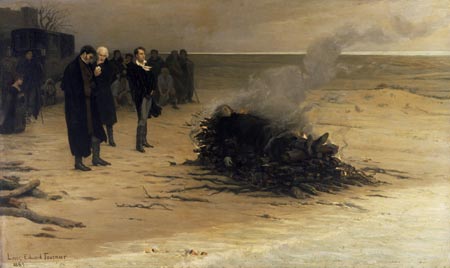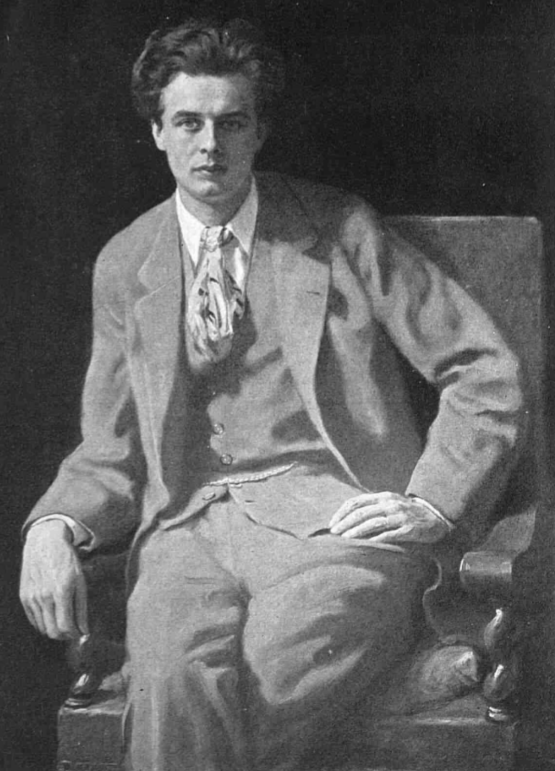Those Barren Leaves

By Aldous Huxley (1925)
“Up! up! my Friend, and quit your books;
Or surely you’ll grow double:
Up! up! my Friend, and clear your looks;
Why all this toil and trouble?
…
Enough of Science and of Art;
Close up those barren leaves;
Come forth, and bring with you a heart
That watches and receives.”
[William Wordsworth, The Tables Turned (1798)]Huxley’s sojourn among the leisured and treasured and their hangers-on, impoverished chancers all, stationed above the Tyrrenhian Sea, whilst as “clever but ephemeral”* as all his books, is still a hoot, a wiry satire of cultural elites who talk of art but think of money, sing of love whilst planning sex, approbate and reprobate, philosophize and rhapsodize. In short, they indulge in omphaloskepsis. Huxley subjects them all to aloof evisceration, vivisection, examination, and condemnation.
Mrs Lilian Aldwinkle inhabits the palatial Cybo Malaspina, perched high on a cliff bordered by pines and olive trees, high above the village of ‘Vezza’. There she smothers her gathered menagerie, waxes lyrically, and generally unreliably, about great Art (“with that large and indistinct enthusiasm evoked in her by every masterpiece“), and devotes herself to her young poet, Francis Chelifer, washed up on the Tyrrenhian shores like Shelley, who between composition makes ends meet by editing The Rabbit Fancier’s Gazette, and who is immune to his host’s charms:
“Religion, patriotism, the moral order, humanitarianism, social reform – we have all of us, I imagine, dropped all those overboard long ago. But we still cling pathetically to art. Quite unreasonably…”
Miss Mary Thriplow, novelist, is researching dedicated amorist, Mr. Calamy:
“And there were moments when she half believed that he really would kill her. It was a new kind of love. She abandoned herself to it with a fervour which she found, taking its temperature, very admirable. The flood of passion carried her along; Miss Thriplow took notes of her sensations on the way and hoped that there would be more and intenser sensations to record in the future.”
The novelist, must above all (after Mrs Aldwinkle), be able to feel:
“She could not help suspecting, when she read Dostoievsky and Tchehov, that she was organized differently from these Russians. It seemed to her that she felt nothing so acutely, with such intricate joy or misery as did they. And even before she had started reading the Russians, Miss Thriplow had come to the painful conclusion that if the Brontë sisters were emotionally normal, then she must be decidedly sub-normal. And even if they weren’t quite normal, even if they were feverish, she desired to be like them; they seemed to her entirely admirable.”
Mary falls for Mr Calamy, who flees, literally heading for the hills, but she still has heaps of useful notes in her commonplace book that she can use.
Mr Tom Cardan, an old flame of Mrs Aldwinkle, is meanwhile engaged upon a venture towards the securing of a comfortable dotage. At first, this is to be in the form of an old piece of sculpture kept by a local grocer – this turns out to be a hackneyed, wavy-haired travesty of a poet. “If I had ever adopted a profession…I think it would have been art dealing. It has the charm of being more dishonest than almost any other form of licensed brigandage in existence.”
But fortunately, in his tramping of the plain to find his precious artefact, Cardan stumbles upon a tragic, rich imbecile, Miss Elver, whom he inveigles back to Cybo Malaspina to clean up for nuptials:
“He might make a slave of the poor creature, might keep her shut up in a rabbit-hutch, and, provided he showed himself now and again to be worshipped, she would be perfectly happy. The thought made Mr Cardan feel strangely guilty….[from the passenger seat of Mrs Aldwinkle’s car, Miss Elver] waved handkerchiefs and shouted as though she were on a char-à-banc. Miss Elver even waved at the cows and horses, she shouted even to the cats and the chickens.”
By way of contrast, we see real love unfolding between Irene, Mrs Aldwinkle’s long-suffering niece, and the devoid of guile Lord Hovenden. The callow young aristocrat is most at ease tearing along in his Vauxhall Velox: “All his victories had been won while he was in the car. It was in the car – eighteen months ago, before he came of age – that he ventured to ask his guardian to increase his allowance; and he had driven faster and faster until, in sheer terror, his guardian had agreed to do whatever he wished.” Now his lordship is taking part in Mrs Aldwinkle’s convey to Rome, the lovely Irene alongside in the Velox. He can’t pronounce “th” so he says “vat,” “vese” and “somefing.” Due in Rome for an International Labour Conference with his mentor, Mr. Falx, his Lordship plays truant, returning to Mrs Aldwinkle’s ensemble and Irene, whose decision to marry him will prove particularly galling to Mrs Aldwinkle, losing all of her retinue as the clock ticks, “getting old, getting old.”
Meanwhile, in the mountains, Mr Calamy has been musing: “Your mediaeval theologian made up for his really frightful cynicism about this world by a childish optimism about the next…” And Mr Chelifer proposes: At one time and in one place you honour your father and your mother when they grow old; elsewhere and at other periods you knock them on the head and put them into the pot-au-feu.” During the interminable philosophy and theosophy, one is reminded of George Eliot and The Key to all Mythologies.
In the final analysis, Huxley is a little too cold and calculating, didactic and overly cerebral, and too much the laboratory man with a microscope, and one does not feel his characters in the gut (much like D. H. Lawrence said of Huxley’s Darwinian exegeses). But this is an unhurried, witty book, and a modest pleasure to inhale. In that sense, it has tended to outlive his better-known novels, such as Brave New World and Point Counter Point.
[*John Sutherland, Lives of the Novelists, (2011) p. 384.]Leave a comment...
While your email address is required to post a comment, it will NOT be published.





0 Comments